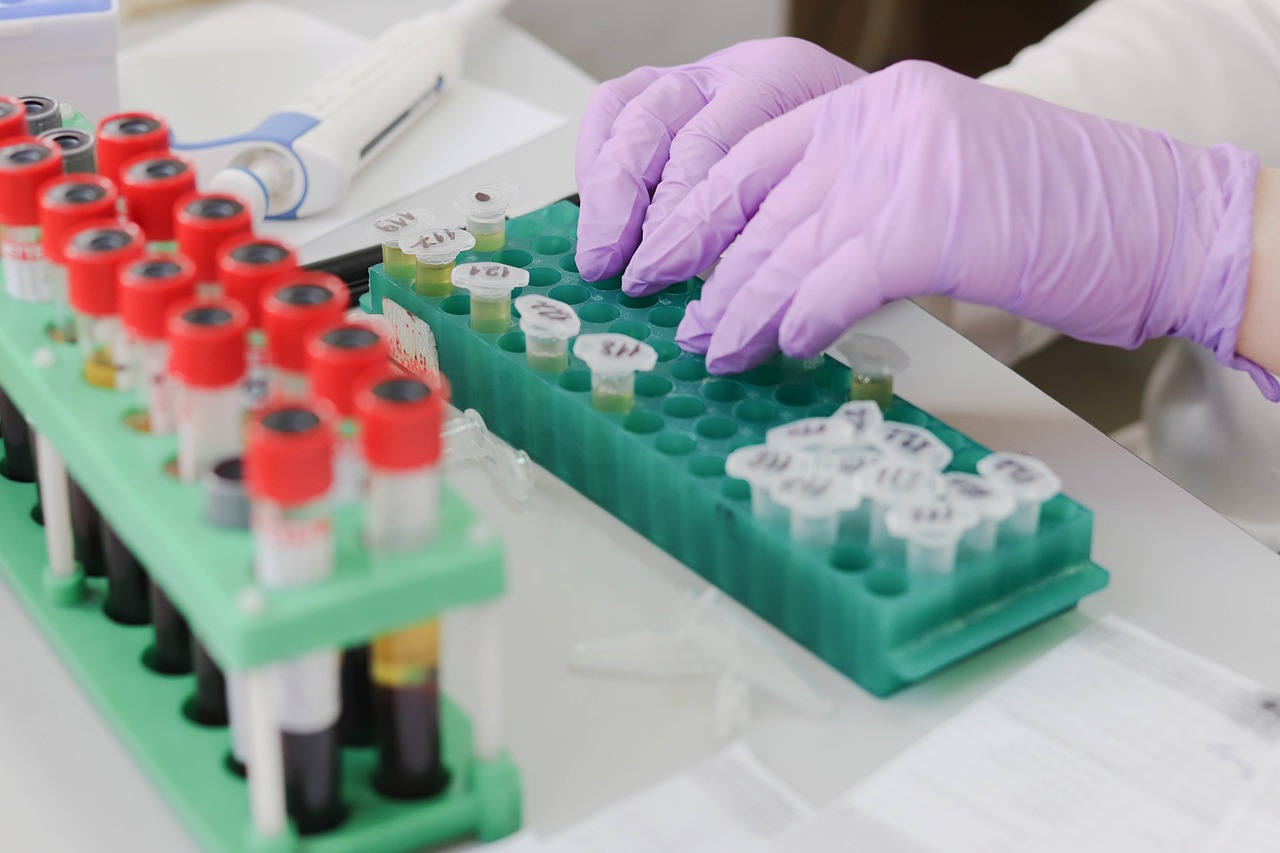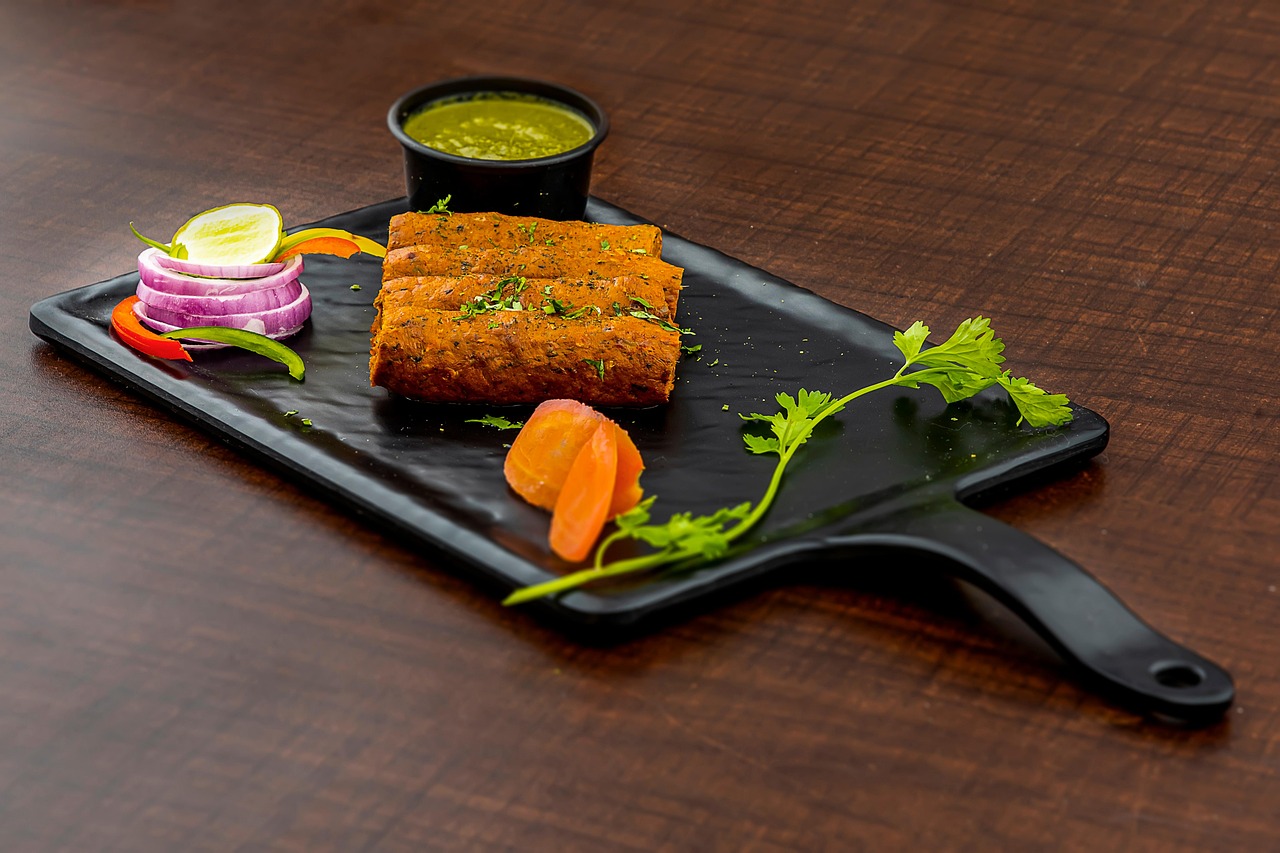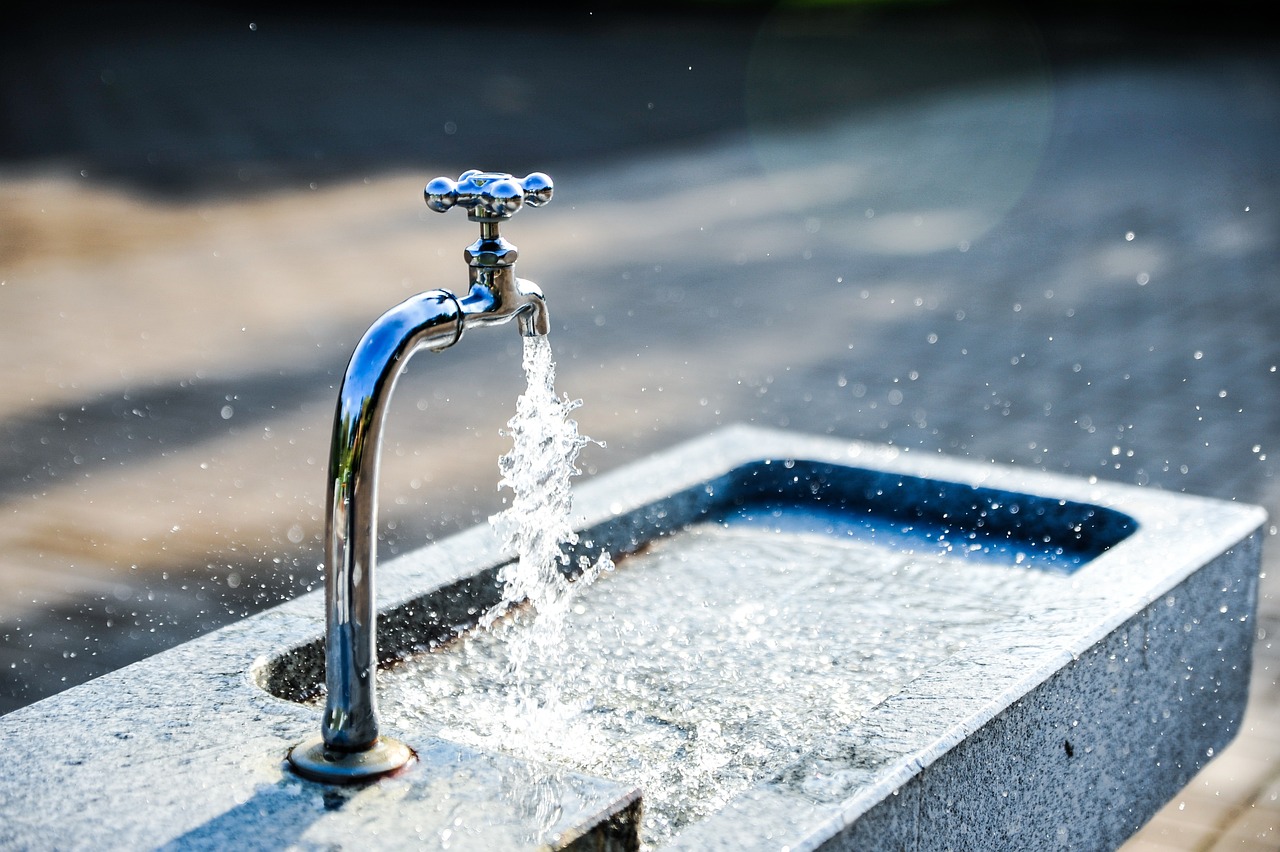Fasting blood tests are critical for diagnosing various health conditions by measuring specific substances in the blood. Understanding the protocol surrounding these tests is essential for ensuring accurate results. One common question patients have is whether they can drink water before a fasting blood test. This article aims to clarify this aspect of fasting protocols and highlights the importance of proper hydration in the context of blood testing.
Understanding Fasting Blood Tests
Fasting blood tests are designed to measure levels of glucose, cholesterol, and other substances without the interference of recent food intake. The fasting period typically lasts for 8 to 12 hours, depending on the specific test being conducted. Adhering to these fasting guidelines is crucial for obtaining reliable results, which can significantly impact patient care and treatment decisions.
Why is Fasting Required for Blood Tests?
Fasting helps to eliminate the variables introduced by food consumption, which can skew test results. For instance, eating can cause temporary spikes in blood sugar or lipids, leading to inaccurate assessments of a patient’s health. Understanding the necessity of fasting can help patients appreciate the importance of following these guidelines.
Common Types of Fasting Blood Tests
- Glucose Testing: Measures blood sugar levels, essential for diagnosing diabetes.
- Lipid Profile: Assesses cholesterol and triglyceride levels, crucial for evaluating heart health.
Can You Drink Water Before a Fasting Blood Test?
When it comes to hydration, drinking water is generally permitted before a fasting blood test. Staying hydrated can facilitate the blood draw process and make it easier for healthcare professionals to obtain a sample. However, moderation is key.
The Benefits of Staying Hydrated
Hydration plays a significant role in the blood testing process. Adequate water intake can help expand veins, making them more accessible for blood draws. Moreover, being well-hydrated can contribute to a more comfortable experience for the patient.
How Much Water Can You Drink?
While water is typically allowed, it’s advisable to limit consumption to moderate amounts. Drinking around 1 to 2 cups of water in the hours leading up to the test is generally considered acceptable. This ensures that you remain hydrated without risking dilution of your blood sample.
Other Liquids: What to Avoid
While water is permissible, there are several beverages you should avoid during the fasting period:
- Caffeinated Beverages: Coffee and tea can alter test results due to their caffeine content.
- Juices and Sugary Drinks: These can introduce sugars into your bloodstream, leading to misleading results.
Preparing for Your Blood Test
Proper preparation is vital for accurate blood test results. Here are some practical tips:
- Follow Fasting Guidelines: Stick to the recommended fasting period.
- Stay Hydrated: Drink water as needed, but avoid other liquids.
- Consult Your Healthcare Provider: If you have questions about fasting or hydration, don’t hesitate to ask.
In summary, drinking water before a fasting blood test is generally acceptable and can aid in the blood draw process. However, it is essential to avoid other beverages that may affect test outcomes. By following these guidelines, patients can help ensure that their blood tests yield accurate and reliable results.
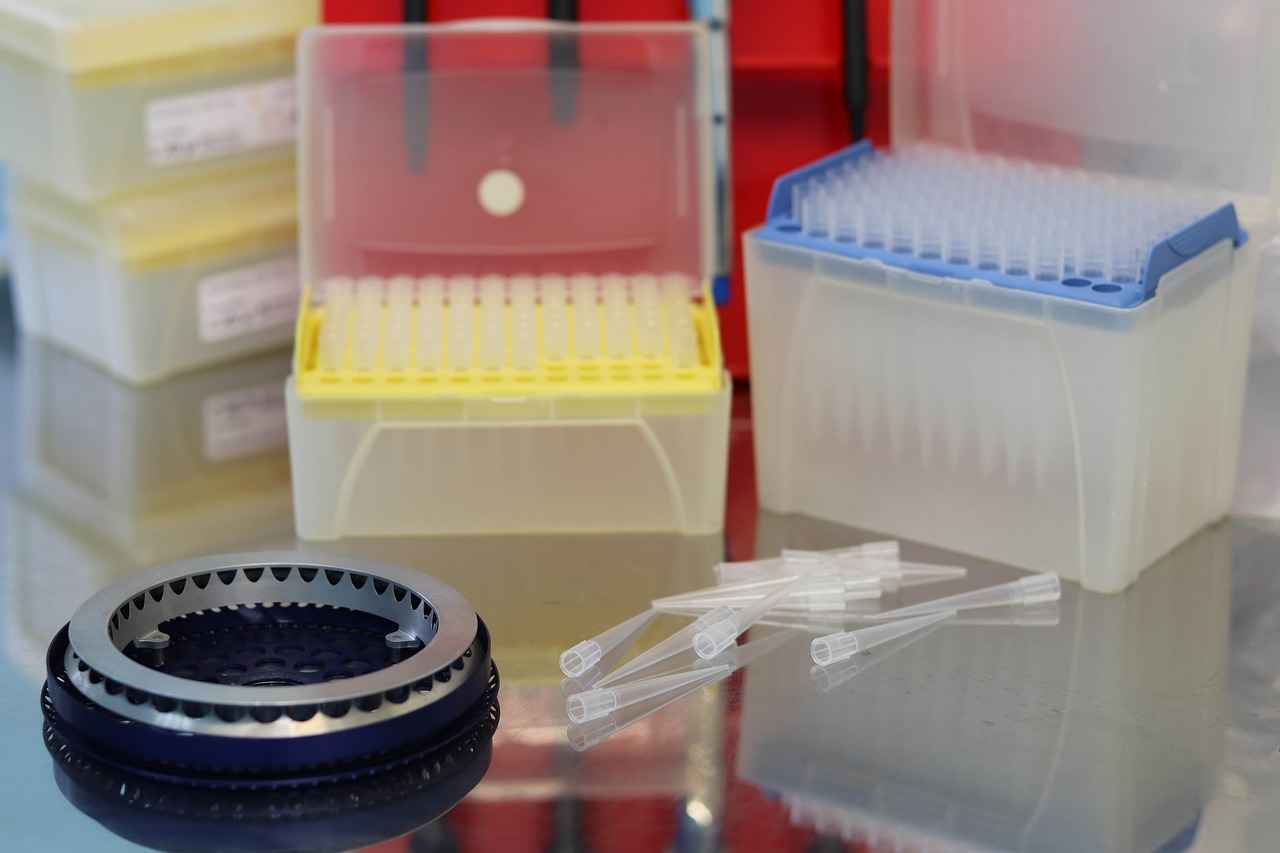
Understanding Fasting Blood Tests
is crucial for patients who need to undergo these important diagnostic procedures. These tests help healthcare professionals evaluate various health conditions by analyzing substances in the blood. Fasting blood tests typically require patients to abstain from food and certain drinks for a specified period before the test. This practice helps ensure that the results are accurate and reliable.
Fasting blood tests are commonly used to measure levels of glucose, cholesterol, and other vital substances. The accuracy of these tests can be significantly affected by what a patient consumes prior to the test. Understanding the specific requirements for fasting is essential for effective healthcare management.
Fasting is a critical component of many blood tests. The primary reason for this requirement is to eliminate the influence of food on the test results. When a person eats, the body processes nutrients, which can temporarily alter the levels of various substances in the blood. For example, consuming food can raise blood glucose levels, potentially leading to a misdiagnosis of diabetes. Therefore, fasting helps provide a clear picture of the body’s baseline levels.
- Glucose Testing: This test measures blood sugar levels and is essential for diagnosing conditions like diabetes.
- Lipid Profile: This test assesses cholesterol and triglyceride levels, providing insights into heart health.
- Liver Function Tests: These tests evaluate the health of the liver by measuring enzymes and proteins in the blood.
Failing to adhere to fasting guidelines can lead to inaccurate test results. For instance, eating before a glucose test can result in elevated sugar levels, which may prompt unnecessary treatments. Similarly, a lipid profile test taken after eating can show artificially high cholesterol levels, leading to potential misdiagnosis and inappropriate interventions.
The question of whether to drink water before a fasting blood test is often asked. In most cases, drinking water is allowed and even encouraged. Staying hydrated can make it easier for healthcare professionals to draw blood, ensuring a smoother testing process. However, it is advisable to avoid any flavored or sweetened waters, as these can interfere with test results.
Hydration plays a significant role in the blood draw process. When you are well-hydrated, your veins are more prominent, making it easier for the technician to locate a suitable vein. Additionally, drinking water can help prevent dizziness and fainting, which some individuals may experience during blood draws.
While water is generally permitted, moderation is key. It is recommended to drink a glass or two of water in the hours leading up to your test, but avoid excessive consumption. This will help ensure that you are hydrated without overloading your system.
Understanding which liquids to avoid during fasting is crucial for accurate test results. The following beverages should be excluded:
- Caffeinated Beverages: Caffeine can affect certain test results, particularly those related to heart health.
- Juices and Sugary Drinks: Consuming juices or sugary drinks can lead to misleading results, particularly in glucose tests.
Proper preparation is vital for accurate blood test results. Here are some practical tips:
- Follow your healthcare provider’s instructions regarding fasting.
- Stay hydrated by drinking water, but avoid other beverages.
- Plan your test for early morning to minimize fasting time.
By understanding the guidelines surrounding fasting blood tests, patients can ensure accurate results and better manage their health.

Why is Fasting Required for Blood Tests?
Fasting is a critical component of many blood tests, serving to enhance the accuracy of diagnostic results. When patients undergo blood tests, the presence of food in their system can introduce variables that may lead to misleading outcomes. This article delves into the importance of fasting before blood tests, exploring the underlying reasons and its implications for health assessments.
Fasting typically involves abstaining from all food and drink, except for water, for a specified period before the test. The duration can vary depending on the type of blood test being performed. For instance, fasting for 8 to 12 hours is common for tests such as glucose and lipid panels. This abstinence allows the body to reach a baseline state, providing a clearer picture of the blood’s composition.
One of the primary reasons fasting is required is to measure glucose levels accurately. After consuming food, glucose levels can spike, leading to a false diagnosis of conditions such as diabetes. Therefore, fasting ensures that the blood sample reflects the body’s natural state, free from the immediate effects of recent meals.
Another critical test that necessitates fasting is the lipid profile, which evaluates cholesterol and triglyceride levels. Food intake can significantly alter these levels, potentially masking underlying health issues related to heart disease. By fasting, patients can provide healthcare professionals with reliable data to assess their cardiovascular health.
Inaccurate test results can lead to misdiagnosis and inappropriate treatment plans. For example, if a patient’s glucose levels are inaccurately high due to recent food consumption, they may be wrongly diagnosed with diabetes, resulting in unnecessary anxiety and medical interventions. Similarly, misleading cholesterol levels can prompt unwarranted lifestyle changes or medications.
Moreover, fasting is not only about ensuring accuracy; it also helps standardize test conditions across different patients. This standardization is crucial for healthcare providers when interpreting results and making clinical decisions. Without fasting, the variability introduced by different diets could complicate comparisons and assessments.
In summary, fasting before blood tests is essential for eliminating food-related variables that could skew results. It serves as a vital practice for obtaining accurate diagnostics, leading to better healthcare outcomes. Patients should be informed about the necessity of fasting and adhere to the guidelines provided by their healthcare professionals to ensure the most reliable results.
Common Types of Fasting Blood Tests
play a crucial role in diagnosing various health conditions. Among the most frequently administered are the glucose and lipid panels. Understanding these tests not only aids in patient preparation but also empowers individuals to take charge of their healthcare journey.
Fasting blood tests require patients to abstain from food and certain drinks for a specified period, usually between 8 to 12 hours. This fasting period is essential to ensure that the test results reflect the body’s baseline levels without interference from recent food intake.
- Glucose Testing: This test measures the level of glucose in the blood and is pivotal for diagnosing diabetes. Elevated glucose levels can indicate insulin resistance or diabetes, while low levels may suggest hypoglycemia. Patients are typically required to fast overnight before the test to ensure accurate readings.
- Lipid Profile: A lipid profile assesses cholesterol and triglyceride levels, providing insight into cardiovascular health. Fasting is essential for this test as it allows for a clearer picture of lipid levels, free from the influence of recent meals. High cholesterol and triglyceride levels can increase the risk of heart disease, making this test vital for preventive health.
- Comprehensive Metabolic Panel (CMP): This panel includes tests that measure glucose, calcium, and electrolytes, among others. Fasting is required to avoid fluctuations in these levels caused by food intake, ensuring that healthcare providers have accurate information to assess kidney function, liver function, and overall metabolic health.
- Thyroid Function Tests: While not all thyroid tests require fasting, certain tests may yield more accurate results when fasting. These tests measure hormone levels that regulate metabolism, and understanding thyroid function is critical for diagnosing conditions like hypothyroidism or hyperthyroidism.
Understanding the importance of fasting before these tests can help patients prepare adequately. Preparation is key to obtaining reliable and meaningful results that can guide treatment and management strategies. Patients should also be aware of the fasting duration and what is permissible to consume during this period.
In addition to glucose and lipid panels, other tests may also necessitate fasting. For instance, certain vitamin and mineral levels can be affected by food intake. Therefore, discussing the specific requirements of your tests with your healthcare provider is essential.
In summary, fasting blood tests, including glucose and lipid panels, are vital for assessing various health conditions. Understanding the requirements and implications of these tests can empower patients to take an active role in their health management, leading to better outcomes.
Glucose Testing
is a critical component in diagnosing and managing diabetes. This test measures the level of glucose, or sugar, in the blood after a period of fasting. Understanding the fasting requirements and the significance of accurate readings is essential for individuals undergoing this test.
Fasting blood glucose tests typically require patients to refrain from eating or drinking anything other than water for at least 8 to 12 hours prior to the test. This fasting period is crucial as it helps to eliminate any recent food intake that could skew the results, providing a clear picture of the body’s baseline glucose levels.
Accurate readings from fasting blood glucose tests are vital for several reasons:
- Diagnosis of Diabetes: Elevated glucose levels can indicate prediabetes or diabetes, conditions that require immediate attention and management.
- Monitoring Blood Sugar Levels: For individuals already diagnosed with diabetes, regular fasting glucose tests help monitor how well their treatment plan is working.
- Assessing Risk Factors: These tests can also help assess the risk of developing diabetes in individuals with other risk factors such as obesity, family history, or sedentary lifestyle.
Before taking the test, it’s important to follow the fasting guidelines closely. Here are some common questions and considerations:
While fasting, patients are generally allowed to drink plain water. Staying hydrated can make the blood draw easier and more comfortable. However, it is crucial to avoid any other beverages, as they can interfere with the test results.
If you consume food or beverages other than water during the fasting period, it can lead to elevated glucose levels, potentially resulting in a false diagnosis. In such cases, the test may need to be rescheduled to ensure accurate results.
The frequency of fasting blood glucose tests depends on individual health conditions and risk factors. Generally, individuals at risk for diabetes should consider annual testing, while those diagnosed with diabetes may need more frequent tests as advised by their healthcare provider.
In summary, fasting blood glucose tests are essential for diagnosing and managing diabetes. By adhering to fasting guidelines and understanding the significance of accurate readings, patients can play an active role in their health management. Always consult with your healthcare provider for personalized advice and recommendations regarding testing schedules and preparation.
Lipid Profile
tests are critical components in assessing an individual’s heart health. These tests measure the levels of cholesterol and triglycerides in the blood, providing essential insights into a person’s cardiovascular risk. Understanding the fasting requirements for a lipid profile is vital for obtaining accurate results, which can significantly influence treatment decisions.
Typically, a fasting period of 9 to 12 hours is recommended before undergoing a lipid profile test. This fasting is crucial because it helps to eliminate any dietary influences that could distort the lipid levels measured in the blood. For instance, consuming food can temporarily raise triglyceride levels, leading to misinterpretation of results and potentially misguided clinical decisions.
During the fasting period, it is generally acceptable to drink water. Staying hydrated can facilitate blood draw procedures, making it easier for healthcare professionals to obtain a sample. However, it is important to avoid any beverages that contain calories, such as juices or sodas, as these can interfere with test results.
- Cholesterol: This includes both LDL (low-density lipoprotein), often referred to as “bad” cholesterol, and HDL (high-density lipoprotein), known as “good” cholesterol. High levels of LDL can lead to plaque buildup in arteries, increasing the risk of heart disease.
- Triglycerides: Elevated triglyceride levels can also contribute to cardiovascular issues. They are often influenced by diet, particularly by the intake of sugars and fats.
The lipid profile is not only a tool for diagnosing existing conditions but also serves as a preventive measure. Regular testing can help monitor changes in lipid levels over time, allowing for timely interventions such as lifestyle changes or medication adjustments. For individuals with a family history of heart disease or other risk factors, a lipid profile can be particularly important.
In conclusion, adhering to the fasting guidelines before a lipid profile test is essential for obtaining accurate and reliable results. By understanding the significance of this test and the proper preparation involved, patients can take proactive steps toward better heart health. Always consult with a healthcare provider for personalized advice and recommendations regarding lipid testing and heart health management.
What Happens if You Don’t Fast?
When it comes to fasting blood tests, adherence to the prescribed fasting guidelines is critical. Not fasting properly can lead to inaccurate results, which may have serious implications for your health. This section explores the potential consequences of eating or drinking before a fasting blood test, emphasizing the importance of following the guidelines.
Fasting blood tests are designed to measure various substances in your blood, such as glucose and cholesterol levels. These tests require that you abstain from food and certain beverages for a specified period, typically 8 to 12 hours. If you consume anything other than water during this time, it can interfere with the test results. Here are some potential consequences of not adhering to fasting guidelines:
- Altered Glucose Levels: Consuming food or drinks can spike your blood sugar levels, leading to misleading results. This is particularly crucial for those being tested for diabetes, as it may result in a false diagnosis or unnecessary treatment.
- Inaccurate Lipid Levels: A lipid profile measures cholesterol and triglyceride levels. Eating before the test can elevate triglyceride levels, which may prompt unnecessary interventions or lifestyle changes.
- Misleading Hormonal Readings: Certain tests measure hormone levels, which can be affected by food intake. For instance, insulin levels can be skewed by recent meals, leading to incorrect assessments of metabolic health.
- Unreliable Baseline Data: Healthcare providers rely on fasting test results to establish a baseline for your health. Inaccurate readings can lead to misdiagnosis and inappropriate treatment plans.
Moreover, the psychological impact of receiving inaccurate results can be significant. Patients may experience unnecessary anxiety or fear regarding their health status, leading to further testing and potential mismanagement of their conditions.
In some cases, healthcare providers may recommend retesting if fasting guidelines are not followed. This not only prolongs the diagnostic process but also adds to the financial burden of additional tests and appointments.
In conclusion, adhering to fasting guidelines is essential for obtaining accurate blood test results. The implications of not fasting can range from misdiagnosis to unnecessary treatments, highlighting the importance of understanding and following the protocols laid out by healthcare professionals. Always consult with your healthcare provider if you have questions about fasting requirements for your specific tests, as they can provide tailored advice to ensure the best outcomes for your health.
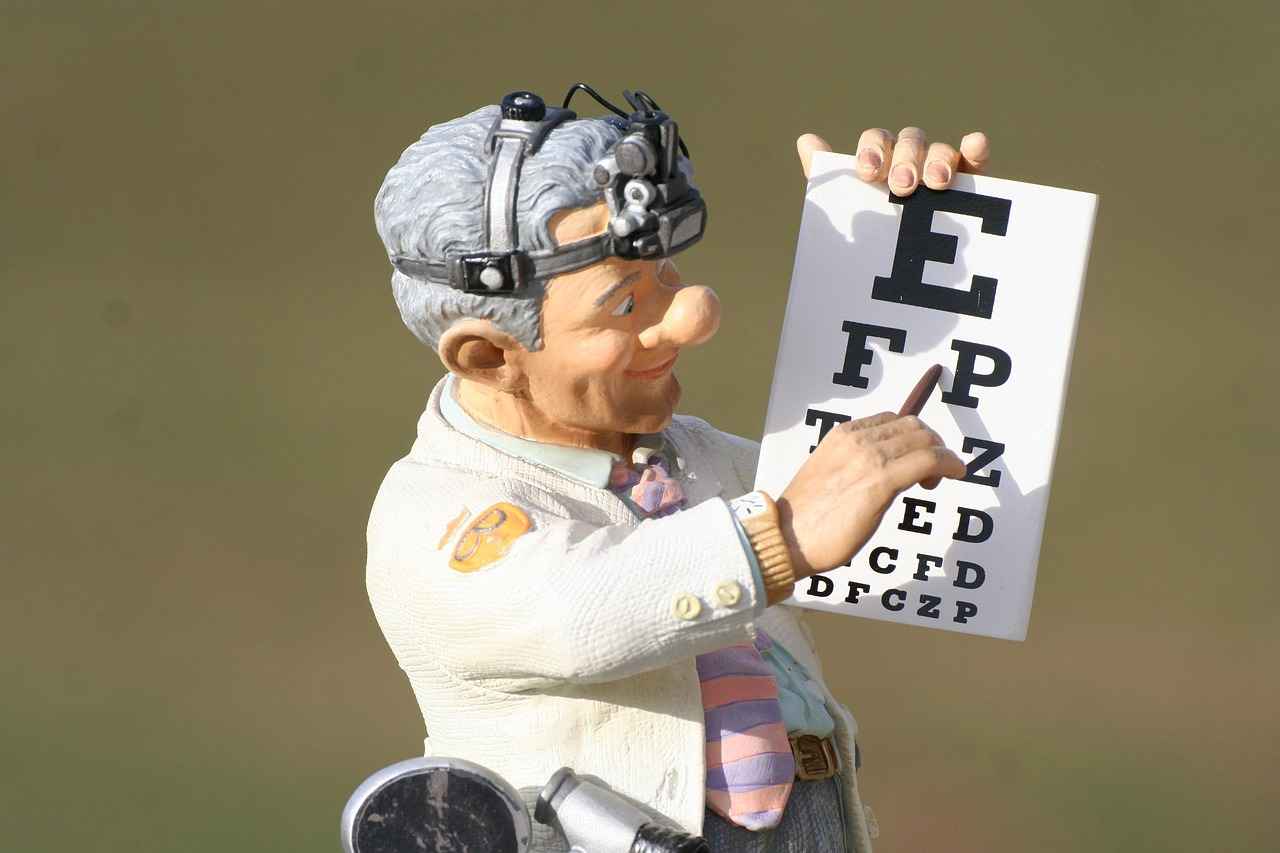
Can You Drink Water Before a Fasting Blood Test?
When preparing for a fasting blood test, many individuals are uncertain about the rules surrounding water consumption. Fasting blood tests are crucial for assessing various health markers, and understanding the nuances of what is permissible can significantly impact the accuracy of your results. Here, we clarify the role of water in fasting protocols and its effects on test outcomes.
Understanding the Importance of Hydration
Staying hydrated is essential for overall health, and this principle extends to the preparation for blood tests. Adequate water intake can facilitate the blood-drawing process, making veins more accessible and ensuring a smoother experience for both the patient and the healthcare provider. Moreover, hydration can help mitigate feelings of dizziness or discomfort that some may experience during fasting.
Is Water Allowed?
Generally, most healthcare professionals agree that drinking water is permissible before a fasting blood test. Water does not contain calories or sugars, which means it typically does not interfere with test results. However, it is important to note that while water is allowed, other beverages are not.
How Much Water Can You Drink?
While there is no strict limit on water intake, moderation is key. It is advisable to drink enough to stay hydrated without overdoing it. A good rule of thumb is to consume about 8 to 16 ounces of water in the hours leading up to your test. This amount is usually sufficient to keep you hydrated while ensuring that your blood can be drawn easily.
What to Avoid: Other Liquids
- Caffeinated Beverages: Caffeine can lead to dehydration and may affect certain test results, particularly those related to blood pressure and heart function. It is best to avoid coffee, tea, and energy drinks before your test.
- Juices and Sugary Drinks: Consuming any drinks that contain sugar or calories can lead to skewed results. These beverages can elevate glucose and lipid levels, making it difficult to obtain accurate readings.
Preparing for Your Test
Preparation is crucial for achieving reliable results in fasting blood tests. In addition to managing your water intake, consider the following tips:
- Follow Instructions: Always adhere to the specific guidelines provided by your healthcare provider regarding fasting duration and water consumption.
- Schedule Wisely: If possible, schedule your blood test for early in the morning to minimize the fasting period.
- Communicate: If you have concerns about hydration or the fasting process, discuss them with your healthcare provider beforehand.
In summary, while water is generally allowed and even encouraged before a fasting blood test, it is essential to avoid other liquids that may compromise the accuracy of your results. Staying hydrated can ease the blood-drawing process and contribute to a more comfortable experience overall. Always consult your healthcare provider for personalized advice and guidelines.
The Benefits of Staying Hydrated
Staying hydrated before a blood test is not just a good practice; it can significantly enhance the overall experience and accuracy of the test. When you drink sufficient water while fasting, it can facilitate the blood drawing process and improve the quality of the sample collected. This section will delve into the benefits of drinking water prior to a fasting blood test, highlighting its importance for both patients and healthcare providers.
- Improved Vein Visibility: Adequate hydration helps to expand your veins, making them more prominent and easier to locate. This can reduce the number of attempts needed to draw blood, minimizing discomfort.
- Enhanced Blood Volume: Drinking water increases your blood volume, which can lead to a more robust sample. A larger blood sample can provide more accurate readings, crucial for tests like glucose and lipid panels.
- Reduced Risk of Complications: Dehydration can lead to complications such as fainting or dizziness during the blood draw. Staying hydrated mitigates these risks, ensuring a smoother experience.
- Better Test Accuracy: Hydration can help in obtaining a clear and consistent sample. Certain tests may be sensitive to blood viscosity, and hydration can help maintain optimal blood consistency, leading to more reliable results.
- Comfort During the Procedure: A well-hydrated body can tolerate the blood draw better, reducing anxiety and discomfort associated with the procedure.
While hydration is beneficial, it’s essential to strike a balance. Overhydration can lead to complications, especially in patients with certain medical conditions. Therefore, it’s advisable to drink water in moderation before the test. Aim for about 16-20 ounces in the hours leading up to your appointment. This amount is generally sufficient to reap the benefits without overwhelming your system.
It’s also important to note that while water is typically allowed, other beverages should be avoided. For instance, caffeinated drinks can lead to dehydration and may affect test results. Similarly, sugary drinks and juices can introduce variables that skew the results of tests like glucose and lipid panels.
In summary, staying hydrated before a blood test is a simple yet effective way to enhance the experience and accuracy of the procedure. By drinking water, you can improve vein visibility, increase blood volume, reduce complications, and ensure more reliable test outcomes. Always remember to consult your healthcare provider for personalized advice on hydration and fasting protocols before your blood test.
How Much Water Can You Drink?
When preparing for a fasting blood test, hydration plays a crucial role in ensuring a smooth experience. While water is generally permitted, moderation is key. Understanding how much water you can drink before your test can help you achieve accurate results and make the blood draw process easier.
Fasting blood tests require you to refrain from eating or drinking anything except water for a specified period, usually between 8 to 12 hours. However, the question of water consumption often arises. It’s essential to clarify that drinking water is not only allowed but is also beneficial. Staying hydrated can help in expanding your veins, making them more visible and easier to access for blood draws.
While there is no strict limit on the amount of water you can consume, a general guideline is to drink 8 to 16 ounces of water during the fasting period. This amount is typically sufficient to keep you hydrated without impacting the test results. Here are some important points to consider:
- Timing: Aim to drink water in moderation during the fasting period leading up to your test. Avoid excessive consumption right before the test, as this may cause discomfort.
- Listen to Your Body: If you feel thirsty, it’s perfectly acceptable to drink water. Dehydration can lead to complications during the blood draw.
- Avoid Other Beverages: Stick to plain water. Other liquids, even if they are calorie-free, may alter test results.
In addition to aiding the blood draw process, staying hydrated can help alleviate feelings of dizziness or faintness that some individuals may experience during fasting. Moreover, drinking water does not affect the blood constituents that fasting tests measure, such as glucose or lipid levels.
Being dehydrated before a blood test can lead to complications. Insufficient fluid intake may result in:
- Difficulty in Blood Draw: Dehydration can cause your veins to shrink, making it harder for healthcare professionals to draw blood.
- Inaccurate Test Results: Severe dehydration can sometimes lead to concentrated blood samples, which may skew results.
- Physical Discomfort: Feeling faint or lightheaded can occur if you enter the test in a dehydrated state.
To summarize, while it is essential to adhere to fasting guidelines, drinking water is not only permissible but also advisable. By consuming an adequate amount of water, you can ensure a more comfortable experience and facilitate accurate test results. Always consult your healthcare provider for personalized advice regarding your specific fasting blood test and hydration needs.
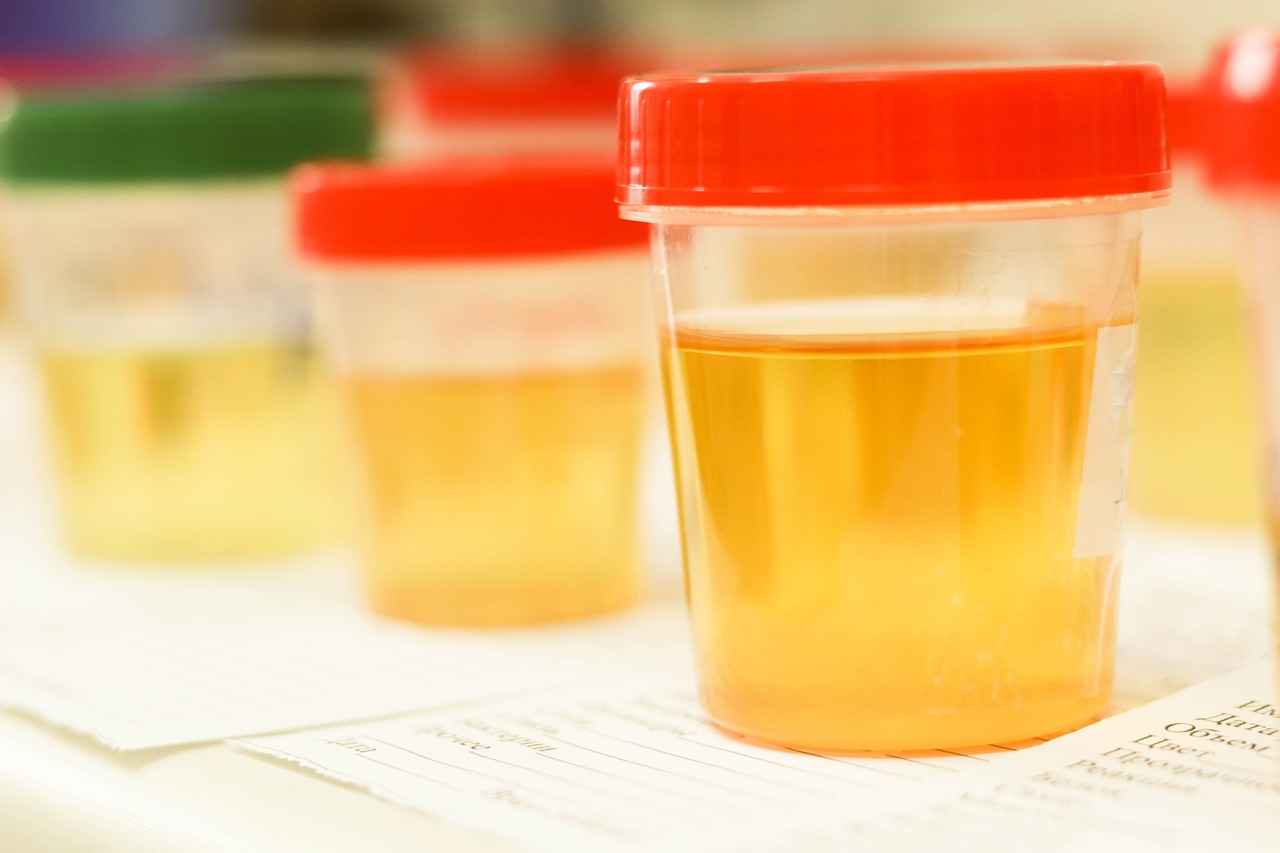
Other Liquids: What to Avoid
Understanding which liquids to avoid during fasting is crucial for ensuring the accuracy of blood test results. Certain beverages can significantly interfere with the measurements that healthcare providers rely on for diagnosing conditions. In this section, we will outline the specific liquids that should be avoided during fasting periods, providing insight into their potential effects on test outcomes.
Caffeine is a stimulant that can impact various bodily functions, including metabolism and hormone levels. Consuming caffeinated drinks like coffee, tea, or energy drinks before a fasting blood test can lead to inaccurate results. For instance, caffeine may elevate blood sugar levels, which can skew results for tests such as glucose monitoring. Therefore, it is advisable to avoid all forms of caffeinated beverages at least 12 hours before your test.
Fruit juices and other sugary beverages can introduce significant amounts of sugar into your system, potentially altering the results of blood tests. Even 100% natural fruit juices contain high levels of fructose, which can affect glucose and insulin levels. Similarly, sugary sodas and energy drinks can lead to misleading results, particularly for tests assessing glucose levels or lipid profiles. It is best to refrain from consuming these drinks during your fasting period.
Alcohol consumption prior to a fasting blood test can lead to elevated triglyceride levels and can interfere with liver function tests. Drinking alcohol can also cause dehydration, which may complicate the blood draw process. To ensure the most accurate results, it is essential to avoid alcohol for at least 24 hours before your test.
While not a liquid in the traditional sense, dairy products should also be avoided during fasting. Milk and cream contain fats and sugars that can affect blood lipid levels and glucose readings. Even small amounts can interfere with the test, so it is best to eliminate all dairy from your diet during the fasting period.
Although some may consider clear broths acceptable, they can still contain sodium and other compounds that may alter blood test results. It is advisable to stick to plain water to maintain the integrity of your fasting period. If you are unsure, it is always best to consult your healthcare provider for specific recommendations.
While herbal teas might seem like a safe option, they can contain various compounds that may affect test results. Some herbal ingredients can influence blood sugar levels or interact with medications. Therefore, it is recommended to avoid all herbal teas during the fasting period to ensure reliable results.
In summary, to achieve the most accurate results during fasting blood tests, it is essential to avoid a variety of liquids that can skew results. By adhering to these guidelines and opting for plain water, patients can play an active role in their healthcare management and ensure that their test results reflect their true health status.
Caffeinated Beverages
can significantly influence the results of certain blood tests, making it crucial to avoid them prior to testing. This section will explore the effects of caffeine on test results and why abstaining from coffee, tea, and other caffeinated drinks is essential for accurate diagnostics.
Caffeine is a stimulant that can alter various physiological responses in the body. When consumed before a fasting blood test, it may affect the levels of certain substances measured in the blood, such as glucose and cholesterol. For instance, studies have shown that caffeine can lead to elevated blood glucose levels, which may mislead healthcare providers into thinking a patient has diabetes or impaired glucose metabolism.
In addition to glucose, caffeine can also impact lipid levels, which are crucial for assessing heart health. The consumption of caffeinated beverages prior to a lipid panel can result in artificially inflated cholesterol readings. This misrepresentation can lead to unnecessary follow-up tests or treatments that might not be needed, causing undue stress to the patient.
Moreover, caffeine can act as a diuretic, potentially leading to dehydration. Dehydration can make it more difficult for healthcare professionals to draw blood, complicating the testing process. Staying well-hydrated is essential, but it should be done with water rather than caffeinated drinks.
To ensure the most accurate test results, it is recommended to avoid all caffeinated beverages for at least 12 hours before a fasting blood test. This includes not only coffee and tea but also energy drinks and sodas that contain caffeine. Here are some common caffeinated beverages to avoid:
- Coffee
- Tea (both black and green)
- Energy drinks
- Sodas
Instead of reaching for your morning cup of coffee or tea, opt for water. Drinking water helps maintain hydration levels, making it easier to draw blood and ensuring that your test results are as accurate as possible.
In summary, avoiding caffeinated beverages before a fasting blood test is essential to prevent skewed results. By adhering to this guideline, patients can help ensure that their healthcare providers receive accurate information, leading to better health decisions and management.
Juices and Sugary Drinks
are often perceived as healthy options, but their consumption during a fasting regimen can lead to misleading results in blood tests. It is crucial to understand why these beverages should be excluded to ensure the accuracy of your diagnostic outcomes.
When preparing for a fasting blood test, the primary goal is to obtain a clear and precise measurement of various substances in your blood. This is essential for tests that evaluate glucose levels, cholesterol, and other important biomarkers. However, introduce sugars and carbohydrates into your system, which can significantly alter these measurements.
One of the most common tests affected by sugary beverages is the glucose test. If you consume juice, even if it is labeled as 100% fruit juice, the natural sugars can spike your blood glucose levels, leading to a false diagnosis of diabetes or impaired glucose tolerance. This is particularly critical for individuals who are monitoring their blood sugar levels for health management.
Similarly, when it comes to a lipid panel, sugary drinks can also skew results. These tests measure cholesterol levels and triglycerides, which are vital for assessing heart health. Consuming sugary beverages before the test can lead to elevated triglyceride levels, potentially resulting in unnecessary concern or further testing.
Moreover, the body metabolizes sugars differently than it does other nutrients. When you consume juice or sugary drinks, your body reacts by releasing insulin to manage the sugar levels, which can interfere with the fasting state required for accurate blood work. This hormonal response can cloud the results, making it challenging for healthcare providers to make informed decisions based on your test outcomes.
In addition to the metabolic implications, consuming sugary beverages can also lead to dehydration, especially if they contain caffeine or high sugar content. Dehydration can make it more difficult to draw blood, leading to a less comfortable experience during the blood draw. Staying properly hydrated with water is crucial, as it helps in the blood-drawing process and ensures that your results are as accurate as possible.
To avoid these complications, it is essential to adhere strictly to fasting guidelines. This means avoiding not only solid foods but also . Instead, stick to plain water, which does not contain any calories or sugars and will not interfere with your test results.
In summary, while juices and sugary drinks may seem like harmless options, they can significantly impact the accuracy of fasting blood tests. For anyone preparing for a blood test, it is vital to exclude these beverages from your fasting regimen to ensure that your results reflect your true health status. Always consult with your healthcare provider if you have any questions about what you can and cannot consume before your test.
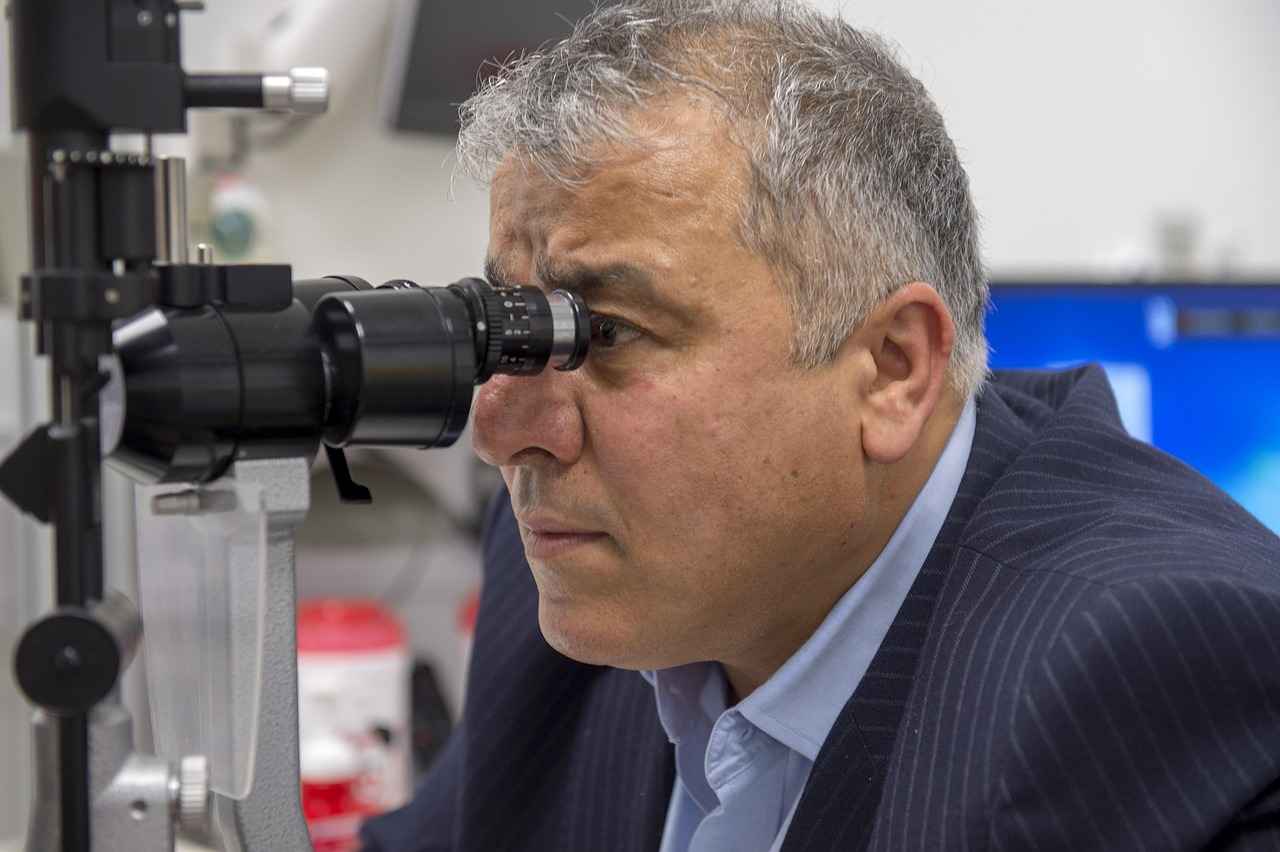
Preparing for Your Blood Test
is crucial to ensure that the results are both accurate and reliable. Fasting blood tests require specific preparation to eliminate any variables that could interfere with the results. Here, we will provide you with practical tips and guidelines to help you prepare effectively for your upcoming fasting blood test.
- Understand the Fasting Requirements: Most fasting blood tests require you to refrain from eating or drinking anything except water for at least 8-12 hours prior to the test. It’s important to clarify these requirements with your healthcare provider to avoid any missteps.
- Stay Hydrated: Drinking water is generally permitted and even encouraged before a fasting blood test. Staying hydrated can make it easier for the healthcare professional to draw your blood, as it helps to expand your veins.
- Avoid Certain Foods and Drinks: During the fasting period, avoid consuming any food, beverages other than water, and even chewing gum. Foods can introduce glucose and other substances into your bloodstream, potentially skewing your results.
- Plan Your Appointment Wisely: Schedule your blood test for early in the morning if possible. This allows you to fast overnight, making it easier to adhere to the fasting requirements.
- Inform Your Doctor: If you are on medication, inform your healthcare provider about your medications. Some medications may need to be adjusted or taken with water during the fasting period.
- Dress Comfortably: Wear loose-fitting clothing with sleeves that can be easily rolled up. This will make the blood draw process more comfortable and accessible.
Be Prepared for After the Test: After your blood test, you may be advised to eat a small snack or meal to replenish your energy levels. It’s also a good idea to have a light snack on hand, especially if you feel faint or dizzy after the test.
Keep Track of Your Symptoms: If you experience any unusual symptoms during your fasting period, such as dizziness or extreme fatigue, it’s important to communicate these to your healthcare provider. They may need to adjust your fasting protocol based on your health status.
Consult with Your Healthcare Provider: If you have any doubts or questions about the fasting requirements or the blood test itself, do not hesitate to reach out to your healthcare provider. They can provide you with personalized advice based on your medical history and the specific tests you are undergoing.
By following these practical tips, you can ensure that you are well-prepared for your fasting blood test, ultimately leading to more accurate and reliable results. Proper preparation not only enhances the quality of your test outcomes but also contributes to better overall healthcare management.
Frequently Asked Questions
- Can I drink water before a fasting blood test?
Yes, drinking water is generally allowed and even encouraged before a fasting blood test. Staying hydrated can make it easier for the technician to draw blood and may improve your overall experience.
- How much water can I drink before the test?
While there’s no strict limit, it’s best to drink water in moderation. Aim for a glass or two to stay hydrated without overdoing it. Just remember, avoid any other beverages!
- What happens if I drink coffee or juice?
Consuming caffeinated drinks or juices can affect your test results, leading to inaccuracies. It’s crucial to stick to plain water to ensure reliable outcomes.
- Why is fasting important for blood tests?
Fasting helps eliminate food substances that can skew results, particularly for tests like glucose and lipid panels. Accurate fasting ensures your healthcare provider gets the right information for diagnosis.
- What should I do if I accidentally eat or drink?
If you accidentally consume something other than water, inform your healthcare provider. They may recommend rescheduling your test to ensure the results are accurate.
